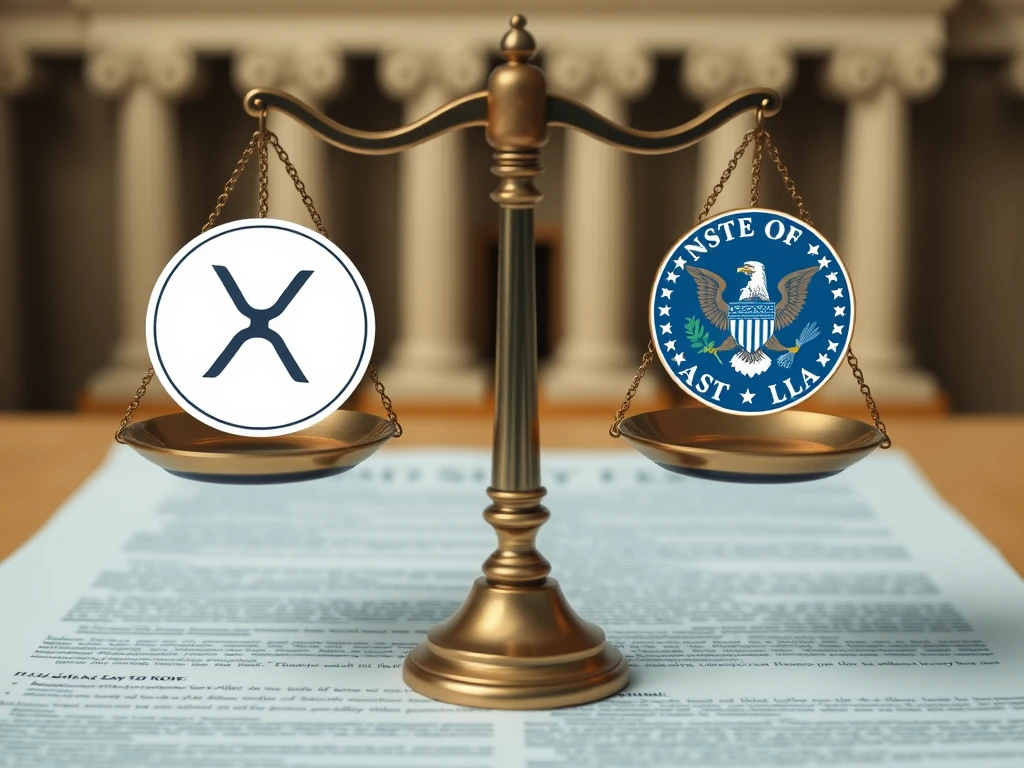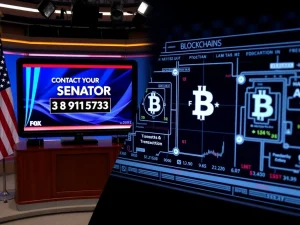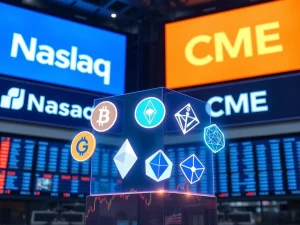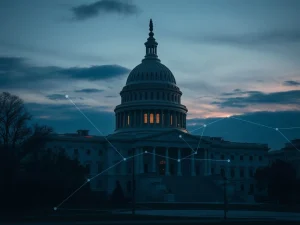Ripple’s Bold Claim: Fungible Crypto in Secondary Sales Are Not Securities, Tells SEC

In a significant move for the digital asset space, Ripple, the company associated with the XRP ledger, has directly challenged the U.S. Securities and Exchange Commission (SEC). Ripple recently submitted a letter arguing that fungible cryptocurrency assets, when involved in secondary market transactions, should not be classified as securities. This stance is crucial for the broader crypto market and its regulatory future.
Ripple’s Core Argument to the SEC
Ripple’s central point, conveyed in a letter dated May 27, is that the trading of fungible cryptocurrencies between users on exchanges or peer-to-peer – known as secondary sales – does not meet the legal definition of a securities transaction. They argue that these transactions lack the key elements of an ‘investment contract’ as defined by long-standing legal tests.
To bolster their position, Ripple referenced the work of US attorney and respected crypto law expert Lewis Cohen. In his influential 2022 paper, Cohen asserted that the existing legal framework for ‘investment contracts’ does not support classifying most fungible crypto assets as securities when they change hands in secondary transactions. He highlighted that these transfers typically do not create or represent the necessary legal relationship between an entity and the holder that is characteristic of a security.
Understanding Fungible Crypto and Secondary Sales
Let’s break down the terms at the heart of this debate:
- Fungible Cryptocurrency: These are digital assets where each unit is interchangeable with another, much like standard currency. Examples include Bitcoin (BTC), Ether (ETH), and XRP. One XRP is considered equal in value and nature to any other XRP.
- Secondary Sales: This refers to the trading of these assets after their initial distribution. If you buy XRP from Ripple directly (a primary sale), that’s different from buying XRP from another individual or on an exchange (a secondary sale).
Ripple’s argument specifically targets the regulatory status of these widespread secondary market activities, which constitute the vast majority of daily crypto trading volume.
Echoes from Within the SEC
Ripple’s letter also drew support from comments made by SEC Commissioner Hester Peirce. In a May 19 speech, Peirce, often referred to as ‘Crypto Mom’ for her more accommodating views on digital assets, voiced her ongoing dissent regarding the SEC’s approach to crypto regulation. She expressed optimism for a ‘new paradigm’ at the SEC and stated her belief that most currently existing crypto assets are not securities.
Peirce clarified that while economic realities matter, and a non-security crypto asset *could* be distributed as part of an investment contract (making that specific *offering* a security), the asset itself doesn’t automatically become a security in all contexts, particularly in secondary trading.
The Protracted Ripple vs. SEC Lawsuit
This latest communication is part of the long-running legal battle between Ripple and the SEC. The lawsuit, initiated in late 2020, centered on the SEC’s claim that Ripple’s sales of XRP constituted unregistered securities offerings. The SEC’s general stance under former chair Gary Gensler has been that a significant portion of the crypto market falls under securities law.
However, Ripple has seen favorable outcomes in the case. Ripple cited a key court ruling that distinguished between certain historical institutional sales of XRP (which the court found were investment contracts) and secondary sales on public exchanges (which the court determined were not). Crucially, the judge also determined that XRP itself is not a security. The SEC recently dropped its appeal against this ruling, marking a significant partial victory for Ripple.
Conclusion: Implications for Securities Law and Crypto
Ripple’s continued assertion to the SEC, backed by legal analysis and court findings, highlights a fundamental conflict in how existing securities law applies to decentralized, fungible digital assets traded on secondary markets. Their argument suggests that regulating the *asset* itself as a security in all contexts, especially post-primary sale, is a misapplication of the law.
The outcome of this debate, significantly influenced by the Ripple case, will have profound implications for how cryptocurrency is regulated in the United States, potentially setting a precedent for the classification and trading of many other fungible crypto assets.










